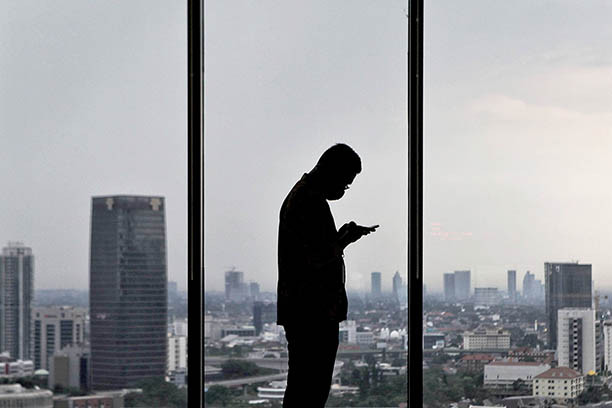Popular Reads
Top Results
Can't find what you're looking for?
View all search resultsPopular Reads
Top Results
Can't find what you're looking for?
View all search resultsWage subsidy program may fall short of target due to data issues
The government has allocated Rp 37.7 trillion (US$2.57 billion) for the wage subsidy program for 15.7 million recipients.
Change text size
Gift Premium Articles
to Anyone
T
he government’s wage subsidy program, earmarked to reach 15.7 million people in an effort to boost household spending and cushion the economic impacts of the pandemic, might fall short of its target as data validity remains a major issue.
National Team for Accelerated Poverty Reduction (TNP2K) working group head for economic capacity enhancement policy, RM Purnagunawan, noted that invalid recipient data and potential missed targets could hinder the program, preventing it from reaching its goals.
“There is a possibility that the 15.7 million target will not be reached,” Purnagunawan said in a webinar on Wednesday. He added that the total recipients would likely be around 12 million, in line with the number of registered bank accounts already eligible for the program as reported by the government.
Data issues could occur for several reasons, he went on to explain. For one, companies might work around not paying some of their employees’ social security benefits by failing to submit a valid account of their employees’ database.
For some workers who have moved from one place of residence to another, their civil registry data might be considered invalid due to inconsistencies in the database, preventing them from receiving the social assistance. For other workers, they may be ineligible to receive the subsidy for not owning a personal bank account, Purnagunawan said.
The government has allocated Rp 37.7 trillion (US$2.57 billion) for the wage subsidy program. The program is eligible for workers who earn less than Rp 5 million per month, are active members of the Workers Social Security Agency (BPJS Ketenagakerjaan) as of June 2020 and own an active bank account. Recipients are entitled to a Rp 2.4 million subsidy, delivered in two installments of Rp 1.2 million once every two months.
The program was put in place by the government to prop up household spending as the Indonesian economy experienced a contraction of 5.32 percent year-on-year in this year's second quarter, with household spending shrinking 5.51 percent.
“Maybe the solution can be added. [The subsidy] can be delivered through the post office. It is unwise to solve the issue by relying on bank accounts,” BPJS Watch advocacy coordinator Timboel Siregar said during the webinar.
He explained that some workers who were not eligible for the wage subsidy program were among the most vulnerable, as they were presumed to be outsourced contract workers who were not paid the minimum wage and thus likely not to receive social security benefits from their employers.
“The philosophy of social assistance is [delivering help] for those who need the help, whereas accurate targeting has yet to happen,” Timboel said.
BPJS Ketenagakerjaan strategic planning and information technology director Sumarjono acknowledged that data issues made it difficult to disburse the wage subsidy to the intended recipients.
Some bank accounts are already closed, while others are considered invalid due to inconsistent name spellings, frozen statuses or inconsistent civil registry data, Sumarjono noted.
“We are coordinating with the banks that channel the funds [to resolve] the obstacles,” he said during the webinar.
As of September, Sumarjono reported that the first installment of the wage subsidy had reached a total of 10.5 million recipients out of the registered 12.42 million accounts. The second installment would be disbursed in October or December at the latest, he said.
National Development Planning Board (Bappenas) director of demographic planning and social protection Muhammad Cholifihani said during the webinar that in reforming the country’s social security, an integrated database between state agencies would be necessary.
“We are looking to continue increasing data accuracy by 50 to 70 percent,” Muhammad said, explaining that reformation of the social protection system was part of the government’s COVID-19 recovery strategy.
In a World Bank report titled Indonesia Public Expenditure Review 2020: Spending for Better Results published in June, the global financial institution made a suggestion for the Indonesian government to strengthen its social assistance delivery systems.
“Invest in the capacity of the integrated social welfare database (DTKS) to minimize exclusion and inclusion errors through reliable dynamic updating mechanisms with the local government and related external institutions,” the report says.










